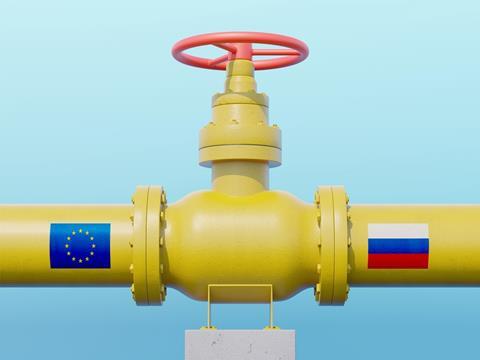
According to a new study commissioned to Equanimator by Zero Waste Europe (ZWE), waste incineration only displaces around 1.1% of the EU27’s consumption of Russian gas. Instead, it proposes the reduction of consumption and waste as a more effective solution to the current crisis.
The report compares different scenarios to evaluate the extent to which waste incineration avoids the consumption of gas – concluding that an optimistic scenario in which all energy generated by incineration were to displace gas would only cover around 3.7% of the EU27’s average consumption. The realistic (and current) figure is supposedly closer to 1.1%.
It is also argued that the current requirement for new facilities is limited and that, unless they have already been planned, their construction would be time-consuming, having no impact on the reliance on Russian gas in the short term. Furthermore, the report critiques industry-led studies for overstating the benefits of waste incineration when it comes to displacing fossil fuels; for instance, by comparing the energy generated by incinerators to highly carbon-intensive energy sources such as coal.
As such, the company asserts that local, regional, and national authorities should invest in the decarbonisation of energy and waste rather than expanding carbon-intensive energy facilities. It also suggests that maximising the recycling of materials at end of life, including through the use of mixed waste sorting systems, should be a priority going forward.
“Member states need to be cautious about the industry claims of the potential benefits of waste incineration to minimise our external energy dependency,” says Janek Vähk, ZWE’s Climate, Energy, and Air Pollution Programme coordinator. “Waste incinerators are too ineffectual and inconsequential to help with the energy crisis even in the best-case scenario.”
“The amount of gas displaced by existing incineration facilities is difficult to estimate,” adds Dominic Hogg, director of Equanimator, “but we consider the effect on gas use to be equivalent to around 1.1% of current gas consumption. The case for new, additional facilities is weak, especially if they are required to sort plastics from leftover mixed waste, as we believe they should be.
“In any event, making a decision to build an incinerator based on a crisis in energy markets would be a mistake, given the lead-time in construction, and expected lifetime. Better to address energy and climate crises in a manner consistent with long-term objectives.”
Another report by Achilles was inconclusive as to whether Europe could become fully independent from Russian fuel imports, with the country supposedly supplying 40% of the EU’s gas in 2021.
Oliver Giani, vice president and senior analyst at Moody’s, also identified a risk of gas cuts for certain European industries, including paper packaging, due to a potential embargo on Russian gas.














No comments yet